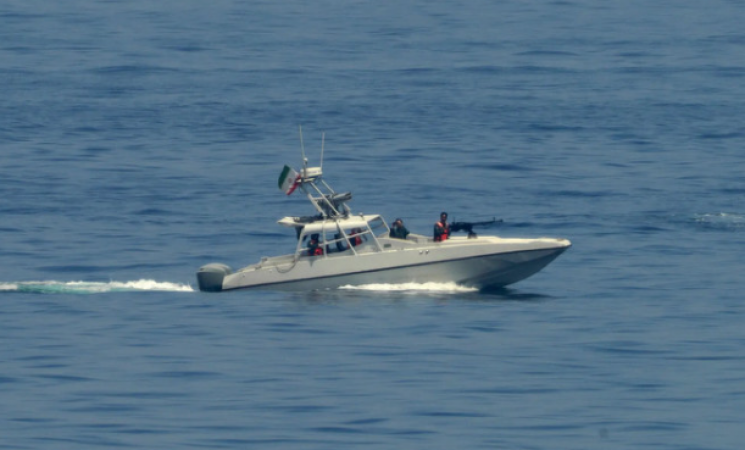
Washington: To prevent Iran from capturing ships in the Gulf, the United States is sending a destroyer, as well as F-35 and F-16 fighter jets, to the Middle East, the Pentagon announced on Monday.
The action was taken after the Iranian Navy attempted to board two commercial ships in the Gulf of Oman and the Strait of Hormuz earlier this month, opening fire on one of the commercial ships in one of the incidents.
According to Deputy Pentagon Press Secretary Sabrina Singh, "the (Defense) Department is increasing our presence and capability to monitor the Strait and surrounding waters in light of this continued threat and in coordination with our partners and allies." She also urged Tehran to "immediately cease these destabilizing actions that threaten the free flow of commerce through this strategic waterway."
Also Read: Jama Masjid Sees New Chapter in Its History with Sermon by Muslim World League Chief
According to a senior defense official on Friday, American warplanes equipped with "the kinds of munitions that would be useful to go against fast boats and moving targets" were flying over the Gulf of Mexico.
As the threat posed by Iranian "fast attack boats, fast attack craft" has grown, we have experimented with a variety of methods to counter it. The official added that the A-10 has demonstrated its capacity to do that.
Also Read: During a storm in Poland, a plane crashed into a hangar, killing the pilot and four other people
Washington claimed that on July 5, its forces prevented Iran from capturing two commercial tankers in international waters off Oman, while Tehran seized control of a commercial ship the next day.
Iran was accused of seizing two tankers in a week in regional waters between April and early May, and of using a drone to attack a tanker owned by Israel in November 2022.
Also Read: Kerry Meets with Chinese Officials to Tackle Climate Change
Since 2018, when tensions spiked as a result of the US president Donald Trump's decision to withdraw from the Iran nuclear deal and reimpose crippling sanctions on the Islamic Republic.
The agreement is still dead in the water, but recent talks have started again with Oman acting as a middleman.